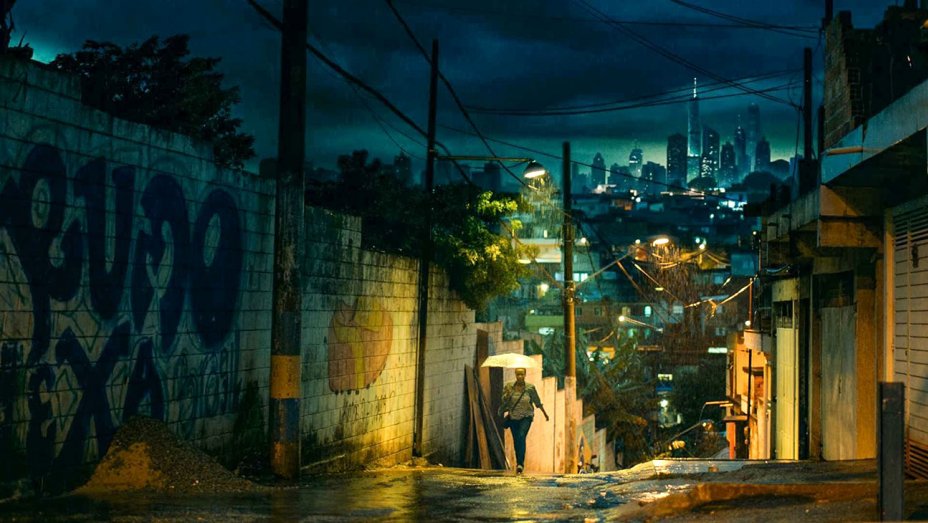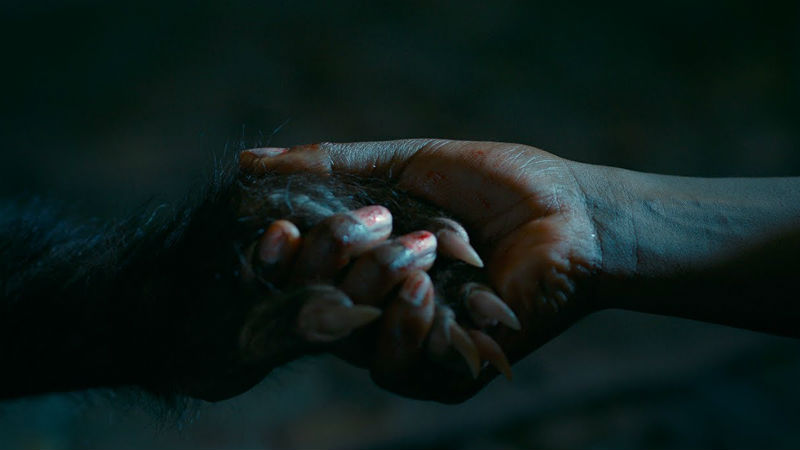QUICK SNAP: LIVE FROM BERLIN
Brazil is undergoing fast changes in the year of 1899. The Republic is just a decade old, and it’s only 11 years since slaves became independent. Black people and their former owners are still coming to terms with the newfound freedoms. Other nationalities – such as Italians and Lebanese – have migrated into the booming nation, rendering the melting pot ever more diverse.
The Soares used to run coffee plantations, but they are now on the brink of bankruptcy. Isabel (Thaia Perez) misses having her feet massaged. Her husband virtually abandoned the family in order to work remotely in order to pay off their debts. They have two daughters. Maria (Clarissa Kiste) has become a nun, and lives in the local convent. Ana (Carolina Bianchi) sees dead people and is mostly detached from reality, offering her mother little support. Now destitute of her slaves and living in a relatively modest dwelling in the oppressive city of Sao Paulo, Isabel has lost her desire to live.
Ana has a very unorthodox plan to instil hope and joy back into her mother’s and sister’s empty and meaningless lives. A plan that is at odds with her very Catholic faith. She asks the family’s former slave Iná (Mawusi Tulani) to stage an African ritual in order to re-energise the ailing woman. Iná reluctantly agrees, but the impromptu performance does little to improve Isabel’s despondent condition.
There are a number of subplots, including Iná’s son and husband, a Portuguese neighbour and her mixed-race nephew (who is in love with Ana), other friends and so on. These stories hardly fit together. The narrative is a big patchwork. I assumed it was a poor literary adaptation, only to find that the script was actually penned by the two directors. The direction is heavy-handed, the acting stilted, the cinematography mediocre, the story hardly comprehensible. Plus it’s entirely humourless. At 120 minutes, All the Dead Ones is painful to watch, if not deadly.
On the positive sight, the film provides some interesting insight into the African cultures of Brazil. But it fails to go into too much depth. At one point, Iná explains to her former owners that “Africa is big” and their culture not monolithic, yet we never learn what these differences are. A missed opportunity to investigate the complex roots of Brazilian identity. The attempt to depict Brazilianness is both shallow and pretentious, says a writer born and raised in largest country of Latin America.
Interestingly, some elements of modern-day Brazil gradually creep into the story. Cars and high-rise buildings suddenly pop up, without the story moving into the 20th century. For a while, I wondered whether this was poor mise-en-scène or a creative choice. The explanation comes at the end of the film, with a very cumbersome twist. I wouldn’t recommend sitting down for two hours in order to find out what this is.
All the Dead Ones is showing in Competition at the 70th Berlinale, which is taking place right now. The directors are likely to return to Brazil empty-handed. I must note that this is a divisive movie. A couple of critics that I spoke to seemed to enjoy it far more than I did. Perhaps I’m not Brazilian enough for Berlin!










